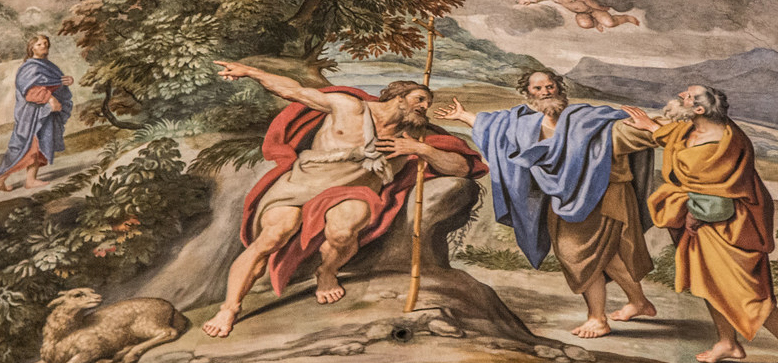
One of the oldest qualifications by which Christians were called was – and we find it in the epistles of Saint Paul – that of “called,” “summoned.” “You who are called,” Paul writes to Timothy. And it is the denomination that has become classic to designate all Christians. “Ekklesiazo” means in Greek: “to summon,” “to call,” and “ekklesia” -”church-” which, from that verb derives, means, precisely, “those summoned,” “the called.”
Being a Christian means, first of all, that, among the millions and millions of human beings that populate the times and spaces of history, God addresses some and, choosing them, calls them.
To be called, therefore, to have a “vocation” is what is typical of a Christian. And the first and last of the readings that we have heard today deal with that call, that vocation.
Ordinary men, immersed in their daily tasks, not particularly distinguished by any talent or particular virtue, are suddenly chosen by God, separated from the common masses, and called to share a life and a mission.
And that’s all Christians. Not only those who today are said to have a religious or priestly “vocation,” which are nothing but specific and particularized vocations within the great Church. Each and every one of the baptized has been “named” and “called.”
The primordial and great vocation is the one that, separating us from the purely human category, introduces us into the family of “the intimate ones” of God. It separates us from the rest and constitutes us as the privileged ones God adopts as his sons and knights, battle companions of Christ.
A vocation that is not a call through massive megaphone advertisements, posters posted on walls, or social media ads, but always constitutes a personal, intimate, exclusive call in which God addresses each one of us by name: “Samuel, Samuel.”
This calling, or “naming,” wants to remove us from the inconsistency and falsification of worldly life, but it also wants to change us inside: “Your name will no longer be Abram, but Abraham.”
This vocation transforms, changes, and sets in motion in our souls the dynamism of a conversion capable of reaching holiness. This personal calling addressed to the deepest conscience of the individual radically modifies his existence, not only in his external conditions and behavior, but even in his heart, making him -or at least enabling him to become- a new man: “man deified.”
The response to this calling is difficult because it cuts us off from the world. But it takes us from the impersonal, numerical, and nameless to the encounter with Someone, not with a doctrine, an ideology, or a theory, but with Someone. An encounter mediated and towards communion with others.
Let us have the courage to answer the calling of Christ to holiness, to friendship with him, to be children of God. This calling will imply separating us from pride, selfishness, and the world’s insatiable thirst for riches and pleasure. But it will enable us to fulfill our heart’s deepest desires for love, truth, peace, and joy.
“We have discovered the Messiah!” “Eurékeman (remember Archimedes’ “eureka”?) ton messiah!” says Andrew. And at the same time, he finds his brother Simon and takes him to meet Jesus. And he looks at him and calls him, names him – changes his name; “You will be called Cephas, Peter.”
Thus, God calls, not through hidden voices or anonymous inspirations, but through witnesses: John to his disciples, Andrew to Peter, Philip to Nathanael. Let us imitate Andrew and Philip by inviting many others to come and meet the Lord.

